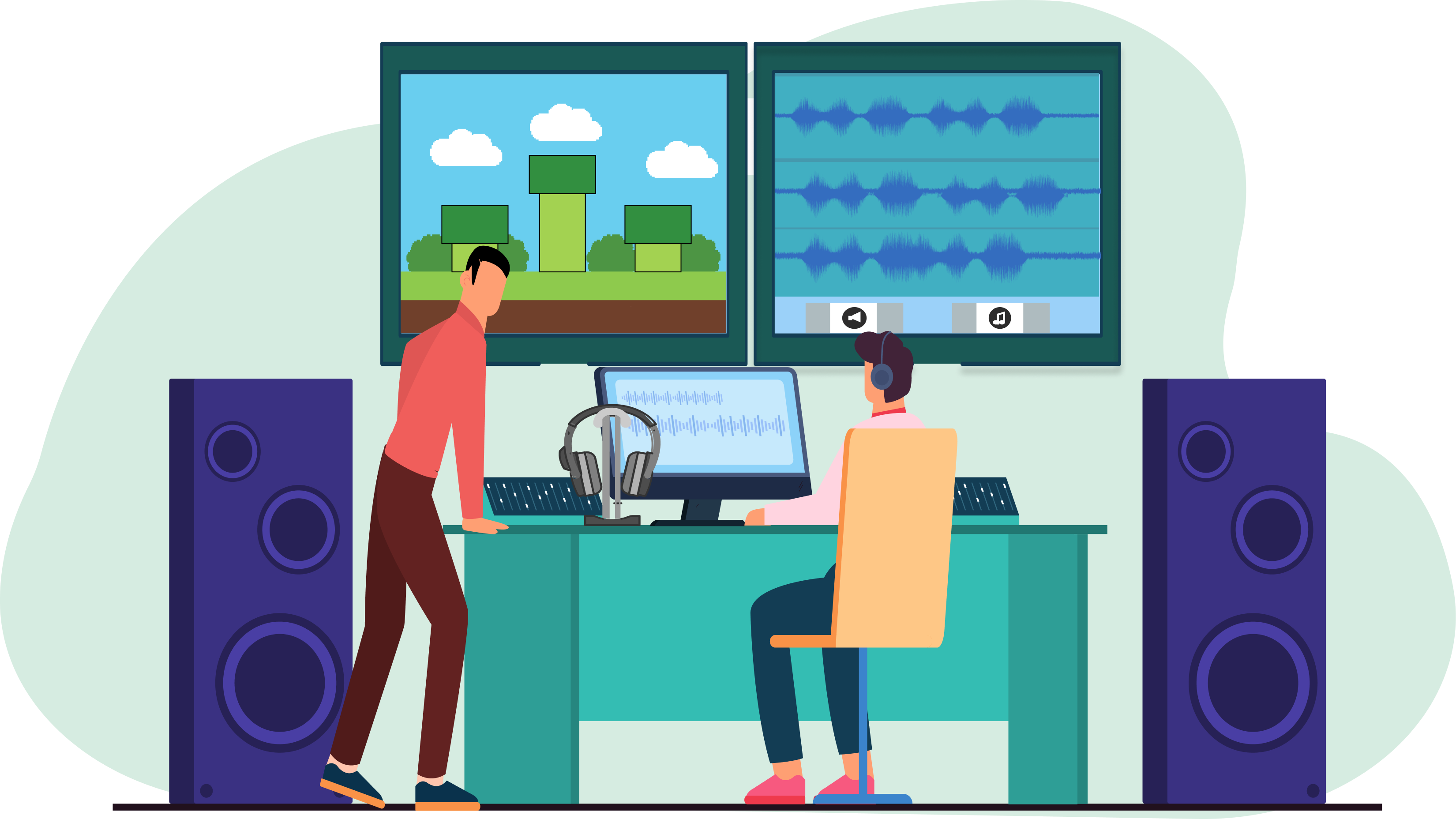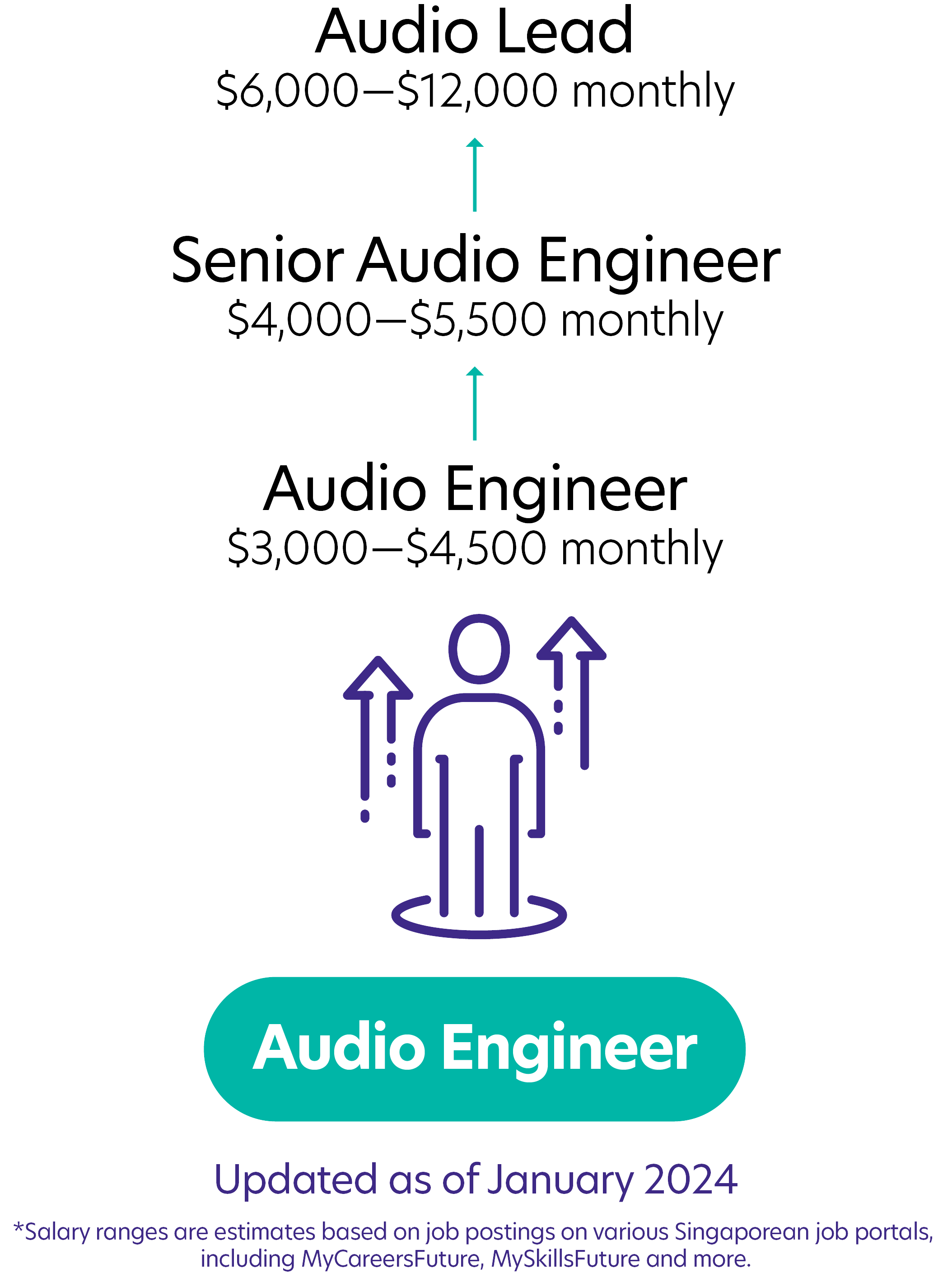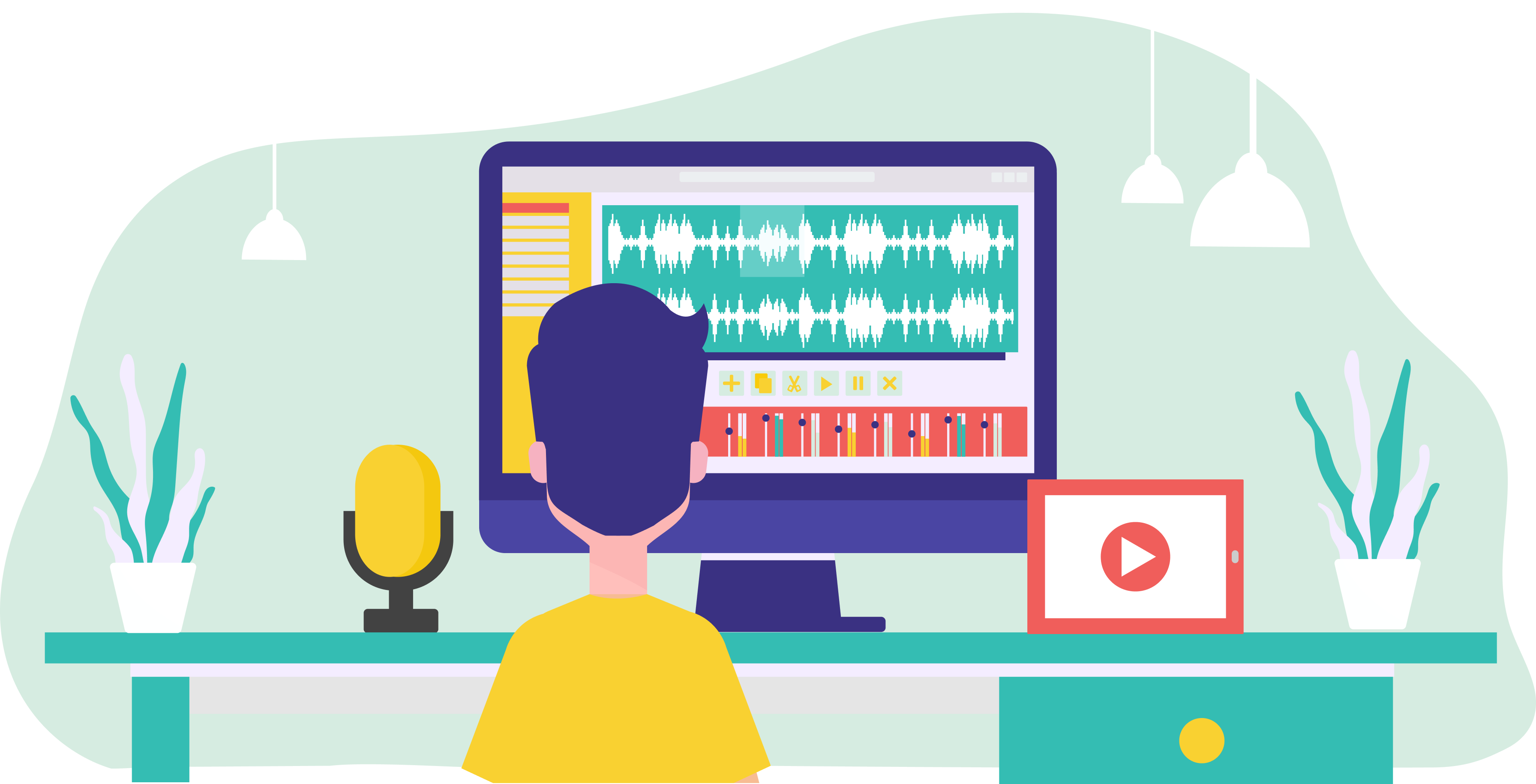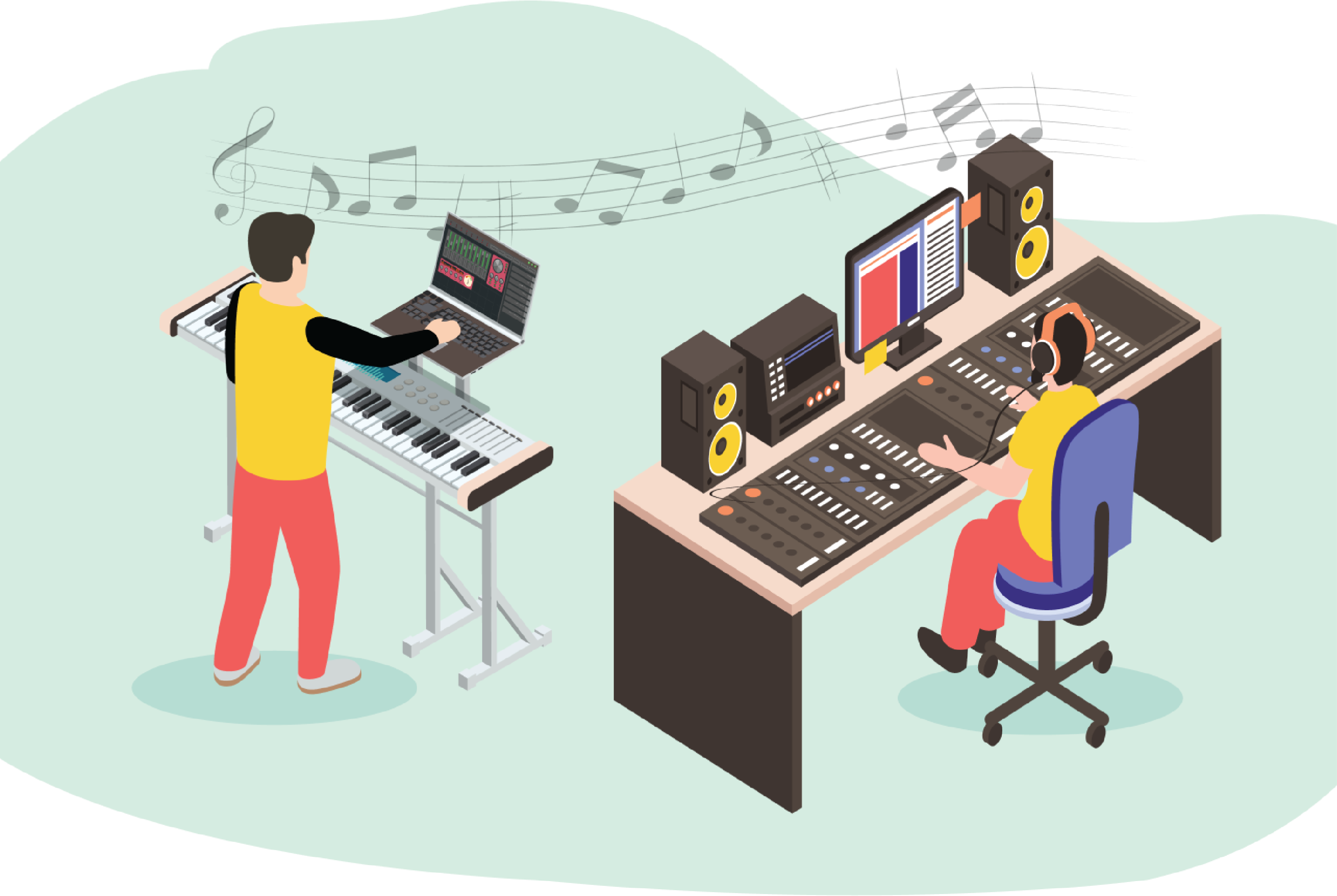
eSports Audio Engineers add various realistic sounds to each game. They make it engaging for the players and the audience watching. They also ensure that the sound quality improves and/or is maintained.
Audio Engineer Job Description
- Communicate with the Director to understand their audio-vision for games
- Conduct sound checks for every game.
- Provide creative ideas by using various sound effects during the games. These effects can be created, enhanced, or mixed with previous soundtracks.
- Resolve any audio-related technical problems that may arise before and during every game.
- Regularly inspect, maintain, and upgrade audio recording and playback equipment.
- Work closely with the game development team.
- Take responsibility for the final audio mix, ensuring that all elements of the game's audio are properly balanced.
- Keep up-to-date with the latest trends and developments in the music industry, to effectively apply it to the games.
Note
Audio Engineers need to hold voice auditions to find the best voice actor for their project.
What you should know about Audio Engineer jobs in Singapore
Nature of Work
Depending on which project, as Audio Engineers, you may need to use creative abilities to understand and encapsulate the audio’s essence.Key Advice
You should have a good sense of timing as they may be required to match the times of footsteps, gunshots, music, etc.-
Entry RequirementsEntry Requirements
- A degree in Audio Engineering or any other related field would increase your chances of successful application.
- For mid-career individuals, those from any qualification could attempt to apply.
- Any certifications in Avid Pro Tools or any other industry-standard audio production software would be a plus, although not necessary
- Audio Engineer Society (AES) Certification or Membership would be a plus, although not mandatory
- Certification in Dolby Atmos is specifically useful to set you apart from other candidates when applying for a role in the eSports industry.
-
Possible PathwayPossible Pathway

Skills you need to pursue an Audio Engineer career in Singapore
Skill in Microsoft Office
Proficiency in using Microsoft Office tools for documentation, project management and communication.Skill in DAW Software and Plugins
Ability to use Digital Audio Workstation software & audio plugins for sound editing and mixing.Knowledge in Music Theory
Exceptional understanding of music theory, including rhythm, harmony and melody.Interpersonal Skills
Strong ability to collaborate with clients and team members, ensuring clear and effective communication.Artistic Vision
Skill in strong artistic vision to conceptualise and execute sound designs that elevate the overall intent.Ability to Work in a Team
Effectively collaborate with other team members and work with Artists, Producers and other Engineers.Related Job Roles
Explore Other Programmes
Browse AllYou have bookmarked your first item!
Find it in My Discoveries with insights on your interests!










